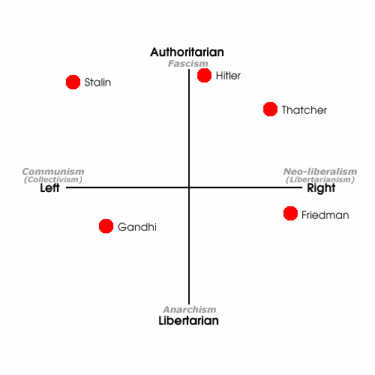
Whatever else can be said about John Pilger (and there is plenty to say), he has definitely got guts. His attempt to whitewash Hugo Chavez’s record in Thursday's
Guardian is bold, brazen and blatant. He casually downplays, excuse or outright ignores the abuses of Chavez’s regime, while overstating its success and doing everything in his power to make everything the fault of Americans.
In the week that Chavez has declared himself president for life (i.e: dictator), it is extraordinary that Pilger makes no mention of this. Nor for that matter does he mention Chavez replacing the independent judiciary with political cronies, riot police being set on peaceful protesters or the harassment suffered by voters who signed the petition calling for a recall referendum.
What he does manage to include are obligatory references to the Chilean coup of 1973 and the Iran-Contra scandal and darkly hint that there is some comparison between what is going on now and what happen then. The reality is rather different. The United States has not actively tried to overthrow. It is true that that the state department failed to condemn the attempted military coup against Chavez but this a far cry from sending the CIA in to topple the government as would once have happened.
Pilger attempts to excuse Chavez’s attempt to close RCTV on the grounds that ‘80% of TV stations are owned by private companies many of which are hostile to the regime is certainly creative but falls down on many grounds. If the Labour Government in Britain tried to close down the Independent, few would consider it a legitimate defence, if the government claimed: ‘well there are plenty of other opposition newspapers.’ What Pilger also ignores is the way that pressure has been put on the owners of other TV stations to avoid criticising the regime, for example, by passing a law requiring journalists to tell the ‘truth,’ a law which will be enforced by the Chavista judiciary. Pilger’s attempt to suggest that RCTV is being closed down because of its support for the coup rather than its criticism of Chavez, is dubious to say the least. If RCTV’s real crime had been to back the coup then why not punish them at the time rather than four years later?
Pilger is full of praise for Venzuela’s social program and rightly so: we can all support better healthcare and education. Where Pilger’s falls down is when he tries to use these programs to excuse the regimes human rights abuses and when he gives Chavez credit for these programs.
To justify the erosion of democracy and human rights because they have coincided with the construction of new schools, hospitals and universities is no different from claiming that Mussolini’s fascist regime was okay because it made the trains run on time. To follow this line of reasoning implies that democratic government and personal freedom are something that a government can dispose with if it finds them inconvenient rather than a non negotiable part of any just society.
It must also be borne in mind that the reason that these programs have come into existence is not because Chavez is a particularly benevolent ruler or because he has discovered a more just economic system but because rising oil prices have given him more money to play with than previous governments.
It is also worth bearing in mind that his record is a far from unblemished. Crime and corruption are up. Inflation is running at 20% and income inequality is rising.
A particularly cutting analysis of the logic of Pilger and his ilk is provided by Francis Wheen in his book ‘
How Mumbo Jumbo conquered the world.’ He looks at Pilger’s attitude to East Timor. For twenty-five years Pilger lamented the West’s failure to intervene to protect the people of East Timor from their Indonesian oppressors. When an Australian led UN peacekeeping force was eventually dispatched to East Timor rather than rejoicing Pilger, condemned the intervention as a sign of Western imperialism. As Wheen puts it: ‘To Pilger … it is axiomatic that the west can never be right.’
Pilger’s conviction that the west is always wrong leads him to believe that only the West can do wrong and therefore that actions committed by opponents of the west are always right. This is a dangerous delusion that leads him to condone actions that run contrary to the values he claims to uphold. Shame on Pilger and shame on those believe his claim to be a fighter for the oppressed.
 At the height of the civil war within the Labour party that eventually led the creation of the SDP, Shirley Williams issued a warning to anyone complacent about the danger of the extreme left.
At the height of the civil war within the Labour party that eventually led the creation of the SDP, Shirley Williams issued a warning to anyone complacent about the danger of the extreme left. 























